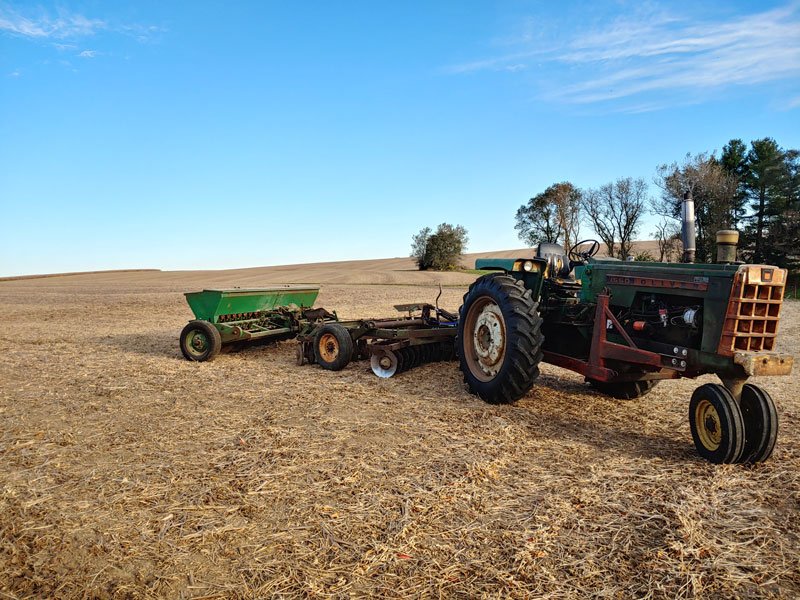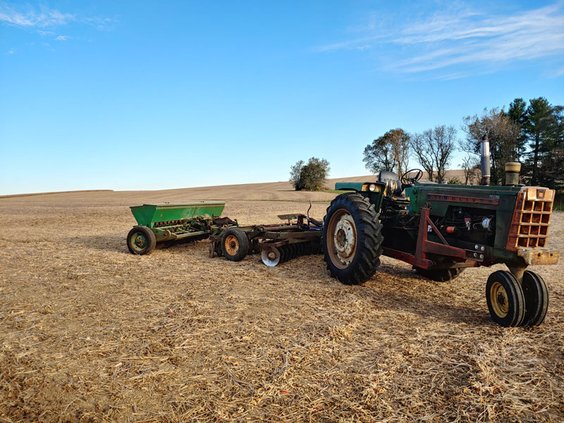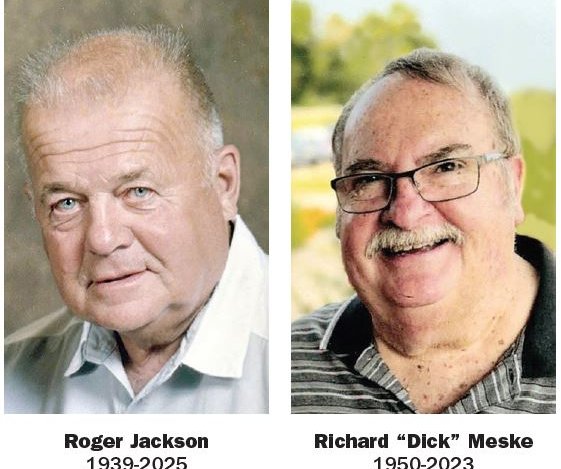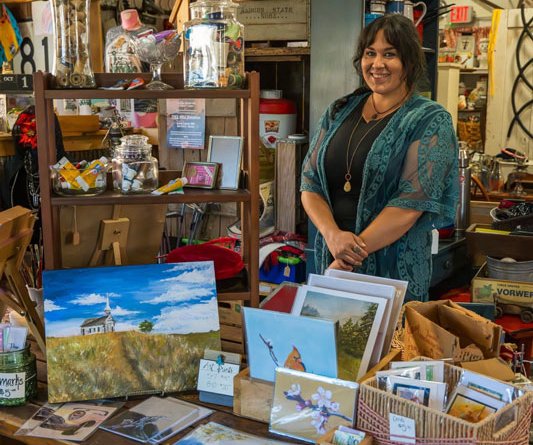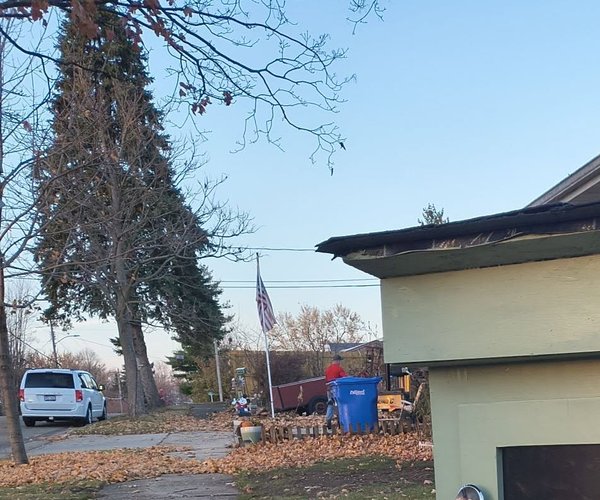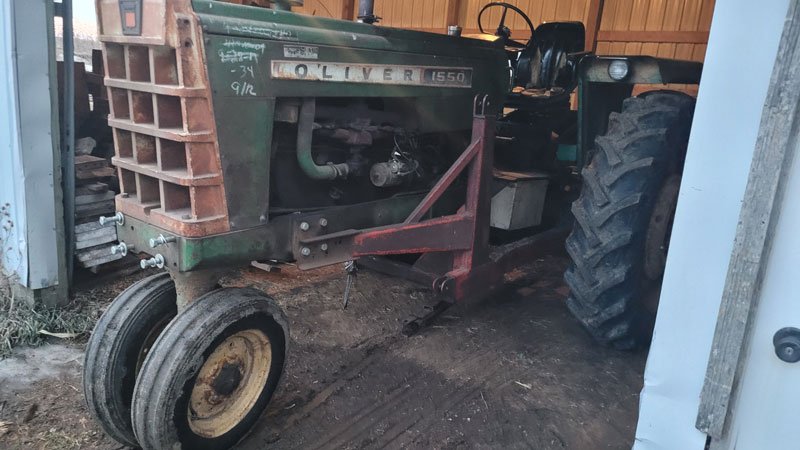
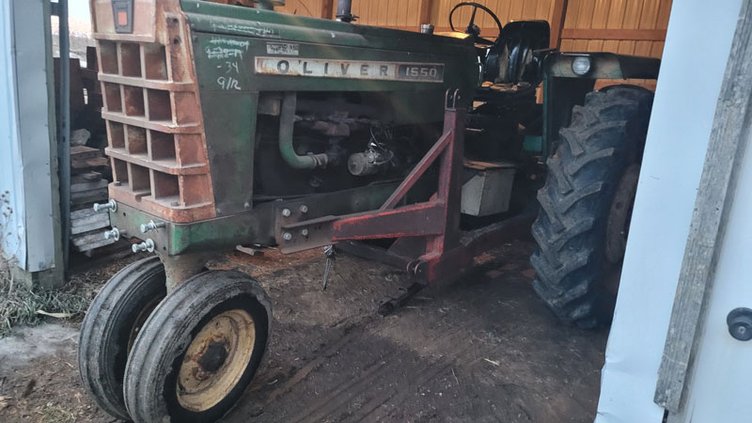
DARLINGTON — It is not that much different from sports loyalty, but with tractors, and farm implements. Some are John Deere fanatics, and see a world in very specific — and iconic — shades of green and yellow.
And then there is the Farmall/International Harvester crowd, who typically show up in bright red.
In most cases, theirs is a tribal allegiance tied to the family farm, sometimes going back generations. And growing up on a Lafayette County farm, it was rare for a kid to shun all the big tractor names. Yet there was a young Lawrence Kieffer, who saw something in a far lesser-known Oliver brand of farm equipment, most of it in a pale green and white color palate.
“My folks and family would be all into John Deere and International, and they would talk a lot about it, but the first tractor I ever drove was an Oliver, and that was that,” said Kieffer, who still farms. “I’m a tractor guy and I just loved it … been a fan since then.”
That led to a lifelong love of the brand, with its storied but rocky history of mergers and which was once based at various times in Iowa and Chicago.
For his part of Oliver history, Kieffer is now the keeper of one of the oldest models of the beloved 1965 Oliver 1550 tractor. He believes his is a prototype; and the second model of its type to come off the company’s assembly line.
“He (the original owner) had this thing 17 years before I got it,” said Kieffer, who, when he is not working on his own farm, plans to begin to restore the old 1550. “But it’s mine now and I love it.”
Oliver Tractors’ history began with the formation of the Oliver Farm Equipment Company in 1929. The company was born from a merger of four established names in agricultural machinery: Oliver Chilled Plow Works, Hart-Parr Tractor Company, Nichols & Shepard Company, and American Seeding Machine Company.
Following the merger, the newly formed Oliver Corporation continued to introduce advancements like diesel engines and the popular Fleetline tractor series between 1948 and 1954. The big merger, according to accounts from the time, gave birth to the Oliver Farm Equipment Company, creating a “full-line” manufacturer capable of providing farmers with a range of equipment — from tractors and tillage tools to planting and harvesting machinery. But alas, brand loyalty and the company’s financial prospects began to fade with the times and the last Oliver-branded tractor, the Oliver 2255, rolled off the assembly line in 1976.
The Oliver brand was eventually phased out entirely in favor of the White brand.
Kieffer’s Oliver needs engine work and to get the tractor back to work but he said when it is running well, the old model is tough to beat.
“They are simple and they just seem to work for what I need them for,” said Kieffer. “A lot of people say that about Oliver, it’s simple, works hard and lasts.”
In fact, Kieffer’s old Oliver is no museum queen — its paint fading and its body worn and rusty — Kieffer used it in his fields not that long ago. Plenty of farmers do still use them for fieldwork, according to issues of the Oliver magazine. Still, he said he would not mind fixing up the Oliver to serve as a sort of educational piece, so that today’s farm kids — just jumping on their first tractors — know there was, for a long time, another way to go besides just Deere and its handful of mega-corporate competitors.
“It’s always been an important thing to farmers, what they used in the fields, so I figured we should tell the whole story of it,” he said.
Kieffer said his Oliver might be worth some money to the right collector, but still this is one lifelong farmer who knows he’s got something on his hands worth more than money. He hopes to restore his Oliver and donate it to a museum
“It really is a piece of history,” he said. “I could sell it. I could. But it is not just a piece of metal. I want to give things away before I die, not after.”
